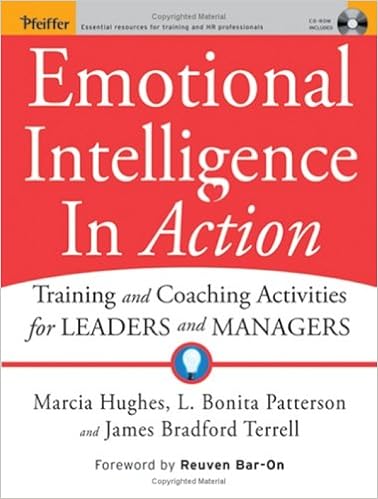Table of Contents
Emotional Intelligence 360-degree Assessment Workshop in Oakland CA
Image by means of Pixabay Have you ever observed your sensations? How often have you entered others' shoes and experienced their emotions? How well do you comprehend what you feel and why you feel so? Emotional Intelligence is our mind's capability to perceive, handle, and reveal feelings efficiently in reality.

Like I (emotional intelligence).Q., emotional intelligence differs from one individual to another. While some people are talented by birth in the method they comprehend and deal with individuals, others may need assistance to construct their psychological abilities. Getting fluent in the language of emotions assists us sustain our relationships both personally and professionally.
The term "Emotional Intelligence" was first released in a paper by Michael Beldoch in 1964, but became popular after Daniel Goleman's 1995 book "Emotional Intelligence Why it can matter more than IQ." A well-balanced, empathetic, and friendly individual is more emotionally aware than an unempathetic and demotivated person. The studies of Daniel Goleman illustrated a mentally smart individual to have: The ability to acknowledge own emotions The capability to associate with others' emotions The capability to actively listen to others The ability to actively take part in interpersonal communication and comprehend the nonverbal cues of behavior The capability to manage one's thoughts and sensations The ability to efficiently handle feelings and express them in a socially appropriate method The ability to receive criticisms positively and take advantage of them The power to forgive, forget, and move on reasonably The number of of the above qualities can you connect to yourself? In this post, we will attempt to uncover the practical implications of emotional intelligence and talk about how to use it for wholesome and healthy living.

These science-based workouts will not only enhance your ability to understand and work with your feelings however will also offer you the tools to cultivate the psychological intelligence of your clients, trainees or staff members. This Post Includes: Can E.I. Be Discovered? "Our emotions have a mind of their own, one which can hold views rather independently of our rational mind." Daniel Goleman (1995, p.
can do simply as well as others by discovering it. The only thing required is the motivation to discover and the intention to apply it in reality. Emotional Intelligence can be gotten and improved at any point in life (Goleman, 2014). Learning psychological intelligence skills needs a resourceful environment where we can picture the areas, or the aspects of E.I.
4 Phases of Learning Emotional Intelligence 1. Insight Any learning starts when we know that there is something in us that requires to be changed or enhanced, and we are prepared to make those changes occur. Emotional intelligence has 5 components in it: Self-awareness the understanding of what we feel and why we feel so Self-regulation the capability to express our sensations in the proper way Motivation the internal drive to change the way we feel and express Compassion the ability to connect to others' emotions and see the world from their perspective Social skills the power to interact effectively and construct strong connections in your home or in the workplace.
Emotional Intelligence - Four Lenses .. in Santa Ana California

starts with acquiring insight into which aspect of E.I. we should work on. Some of us might have solid social abilities but do not have in self-regulation while others may be high up on motivation however poor in self-regulation. The learning procedure starts with the knowledge of which aspect of E.I. to establish.

Assessment The next step is attempting to measure where we stand on each of the E.I aspects. E.I. tests are widely available online, or if you are looking for training in an expert setup, there will be products provided to you for evaluating your emotional intelligence. Here are a couple of evaluations and psychological intelligence tests that we can consider evaluating our E.I.

More on E.I. evaluations and resources in the upcoming areas. 3. Training Evaluation opens us to a variety of choices to pick from. Depending on what part of psychological intelligence we need to deal with, we can choose what sort of training would fit us the finest. For instance, a low score in motivational and social interaction aspects can be enhanced by organizational training.
courses and workshops for workers who are keen to construct their social skills. E.I. training enhances: Communication abilities and the power to comprehend nonverbal cues of interaction (for instance body language, facial expression, the tone of words, and so on) Group efficiency, specifically at the workplace and keeping a high team spirit Organizational abilities and managing schedules more effectively Work inspiration and the power to accept feedback and criticism positively Leadership skills 4. emotional intelligence.
Table of Contents
Latest Posts
Leading With Emotional Intelligence - Four Lenses in Santa Rosa CA
Emotional Intelligence By Shipley Communication in Lancaster California
Emotional Intelligence And Coaching Skills Course For Leaders in Oceanside California
Navigation
Latest Posts
Leading With Emotional Intelligence - Four Lenses in Santa Rosa CA
Emotional Intelligence By Shipley Communication in Lancaster California
Emotional Intelligence And Coaching Skills Course For Leaders in Oceanside California